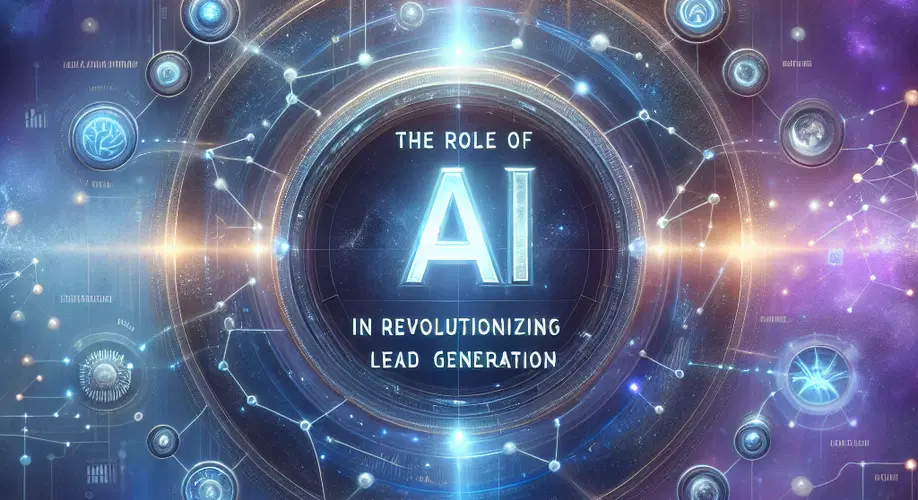
The Role of AI in Revolutionizing Lead Generation
In the rapidly evolving landscape of digital marketing, Artificial Intelligence (AI) is not just a buzzword but a transformative force. It is revolutionizing the way businesses approach lead generation, making the process more efficient and targeted. By leveraging machine learning algorithms, companies can analyze vast amounts of data to identify patterns and predict customer behavior. This enables marketers to craft personalized campaigns that resonate with potential customers, significantly increasing the chances of conversion.
The integration of AI in marketing strategies goes beyond lead generation. It plays a crucial role in enhancing the customer experience at every touchpoint. Chatbots and virtual assistants, powered by AI, provide instant support and personalized recommendations, making interactions more engaging. Furthermore, AI-driven analytics tools offer insights into customer preferences and behavior, allowing businesses to tailor their offerings and communication strategies accordingly. This level of personalization not only fosters loyalty but also boosts overall business performance.
However, the adoption of AI in digital marketing also raises ethical considerations. The use of personal data for targeted advertising and lead generation must be balanced with respect for privacy and consent. Businesses need to ensure they are transparent about their data practices and comply with regulations such as GDPR. By prioritizing ethical considerations and responsible use of AI, companies can build trust with their audience, which is essential for long-term success in the digital age.
Ethical Considerations in AI-Driven Marketing
In the realm of digital marketing, AI-driven strategies are increasingly becoming the norm, offering unprecedented capabilities in lead generation and customer engagement. However, with great power comes great responsibility, and the ethical considerations of employing AI in marketing cannot be overlooked. It's essential to ensure that AI technologies are used in a manner that respects consumer privacy and promotes transparency. Marketers must navigate the fine line between personalization and intrusion, ensuring that their AI-driven initiatives are both effective and ethically sound.
The use of machine learning algorithms and chatbots in marketing not only streamlines processes but also enhances the customer experience by providing timely and relevant content. Yet, the deployment of these technologies raises important ethical questions, particularly regarding data security and the potential for bias in automated decision-making. Businesses must be vigilant in their use of AI, implementing robust data protection measures and regularly auditing their systems to prevent discrimination and ensure fairness in customer interactions.
Ultimately, the goal of integrating AI into digital marketing is to foster a more efficient and engaging customer journey. While the benefits of AI are manifold, ranging from improved lead generation to personalized customer experiences, it's crucial that companies prioritize ethical considerations. By adopting ethical guidelines and practices, businesses can leverage AI to not only boost their marketing efforts but also build trust with their audience, ensuring a positive impact on both the industry and society at large.
Enhancing Customer Experience with AI in Content Marketing
In the rapidly evolving landscape of digital marketing, Artificial Intelligence (AI) is not just a buzzword but a transformative force. From analyzing vast amounts of data to predicting customer behavior, AI technologies such as machine learning and chatbots are revolutionizing the way businesses interact with their audience. By leveraging AI, companies can personalize content, anticipate customer needs, and deliver a seamless customer experience. This not only enhances customer satisfaction but also fosters loyalty and boosts the overall business growth.
The integration of AI in content marketing specifically offers a unique opportunity to elevate the customer experience. Through the use of sophisticated algorithms, AI can help in creating content that is not only relevant and engaging but also timely. This means that customers receive content that is tailored to their interests and needs at the right moment, making their interaction with the brand more meaningful. Moreover, AI-driven analytics can provide insights into customer preferences and behavior, enabling marketers to refine their strategies and create even more impactful content.
However, the use of AI in digital marketing is not without its challenges. Ethical considerations, such as data privacy and the potential for bias in AI algorithms, are critical issues that businesses must address. By implementing transparent practices and ensuring the ethical use of AI, companies can build trust with their customers and avoid potential pitfalls. Ultimately, the successful integration of AI in digital marketing hinges on balancing technological innovation with ethical responsibility, leading to a win-win situation for both businesses and their customers.









